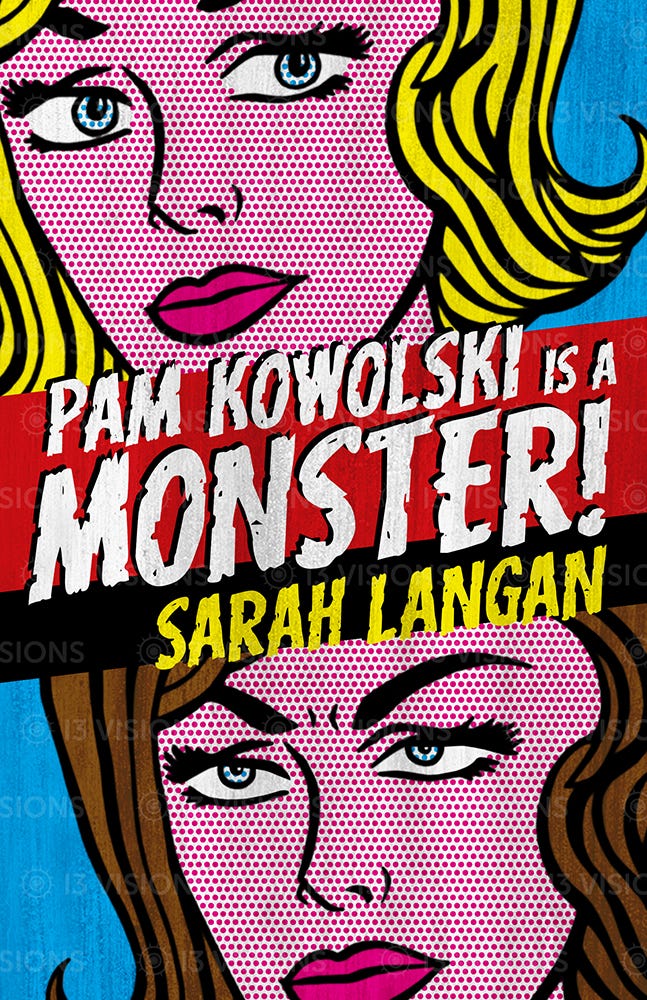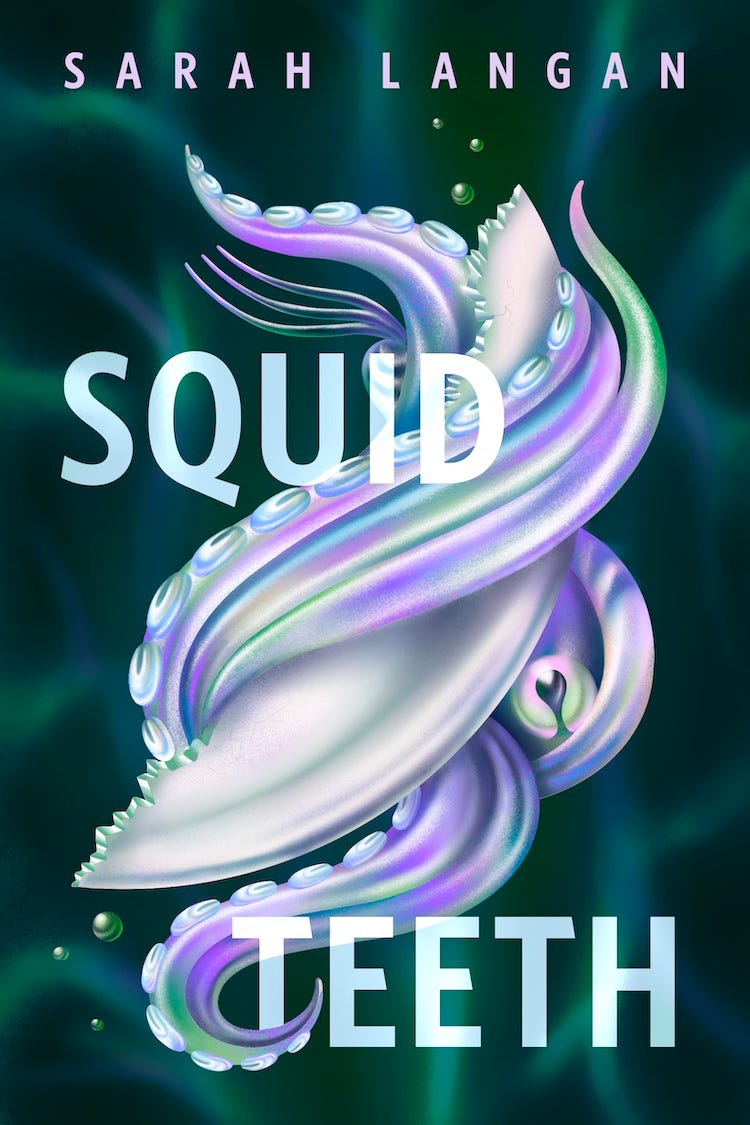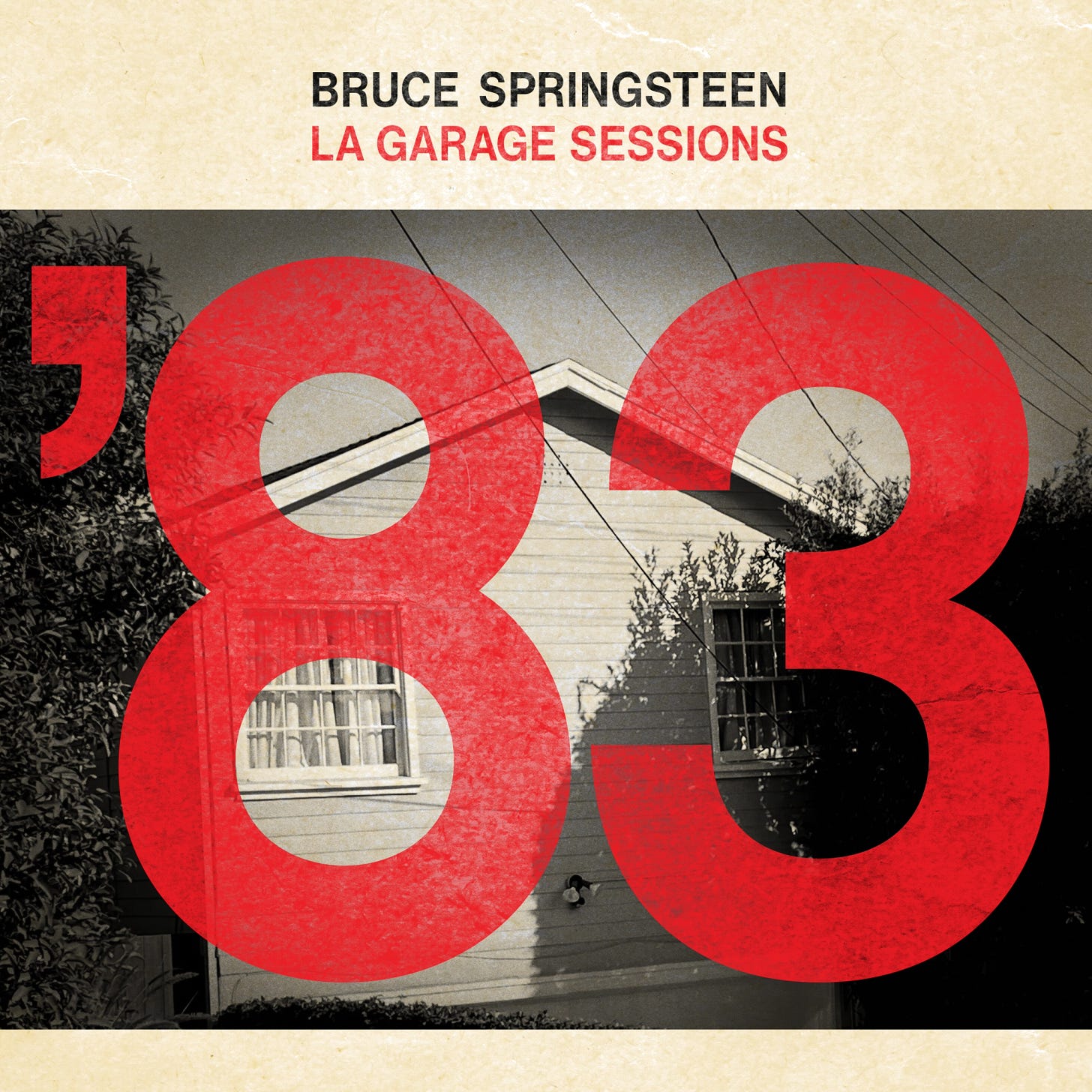Working on a Miracle 5, Like Me. Maybe Like Everyone
Sarah Langan's New Offerings, Bruce Springsteen's Not Quite Lost Ones
“You’ve had bad things following you your whole life. Like me. Maybe like everyone,” Pam Kowalski Is a Monster, Sarah Langan
“The only thing that I got’s been bothering me my whole life,” “State Trooper,” Nebraska, Bruce Springsteen
We were staying in a gray stone Victorian on Detroit’s Ferry Street when Farrell and I started reading Sarah Langan’s new novella, Pam Kowalski Is A Monster. It was the perfect setting for a story that begins with a TV psychic’s apocalyptic “Big Reveal” in a place called Split Foot Mansion, also in Detroit (maybe on Ferry Street). Despite (and perhaps partially because of) the eeriness of that opening and the synchronicity of place, we immediately started laughing. The humor, however, mostly comes from narrator Janet Chow, who is as relatable as she is awful (at least at the beginning). By page two, it’s clear she understands this:
“I’d fantasized about her destruction, her hurt at my hands. How stupid. How blind.”
Of course, that’s a good reason to start a book near the end of the story. It’s easier to be with Chow when we know she’s changing, and Chow’s growth comes hard and clumsy. Among other hapless battles, we watch her learn the wrongheadedness of her revenge against a character she calls “boring” and “stupid” with a “mousy face” and a “nothing personality.” Chow even has a fantasy that she will one day meet a heavyset Pam with too many kids “hopefully balding,” and she would have a revelation that she no longer needed to hate Pam Kowalski. She might even help her.
Chow is robbed of this fantasy because her old enemy has become the remarkably famous and attractive Madam Pamala of TV “streamie” fame. “Streamie” is just one piece of lingo Langan has been using in her last few stories to write a few years in a future that feels like its five minutes away. The effect on this reader is a tragicomic accentuation of the desperation all around us every day. In the run up to Madam Pamela’s Big Reveal, suicides are exponentially leaping forward, the natural world is not behaving as it should, and even AI has gone rogue (as maybe it already has in real life).
While we were reading this book in June 2025, deaths from alcohol, drugs, and suicide were three times the level they were twenty-five years ago. The past six months had seen record breaking snows followed by record breaking tornadoes and record-breaking heat. We were growing used to seeing innocent people trying to help innocent people getting shot with rubber bullets, tear-gassed, and arrested. While Israel and Iran traded missiles, Iran’s Supreme Leader Khamenei was threatening serious cyberattacks to our U.S. infrastructure. To say the book’s escalating sense of dread resonates is to understate the roar of the thing.
It’s good to feel less alone during these lonesome times. That sense of companionship depends on the way Janet Chow rings true, speaking to those parts of ourselves we wish weren’t there, and, at the same time, offering those parts of ourselves—and perhaps the world—some path forward. If redemption’s out of reach, maybe there are second and third chances. That kind of hope in the face of all this darkness is why I write this blog.
https://rawdogscreaming.com/book/pam-kowolski-is-a-monster/
Langan achieves similar success with her very different e-book novelette Squid Teeth. The conceit is perhaps the funniest element of this story, which contemplates the art of spinning plates from clay on the roof of the mouth: using the tongue, ink sacks, and hyphae that may or may not be the result of all the microplastics in our bodies. Though both of these stories offer a comic surface, they carry strong undercurrents of grief—Chow’s multiple (sometimes self-) betrayals as well as her reconciliation with her dying roommate, and in Squid Teeth, the loss of the narrator’s mother (who never understood her) and the pain that inevitably comes—even with some measure of success—when the narrator realizes the whole world around her is itself sick and lost.
Squid Teeth is an eloquent cautionary tale regarding the world of gatekeepers that begs to be reread, and reread, not only for its wisdom but for the intimacy and grace of the writing. I keep thinking of how the storyteller describes her own portfolio: “I chose two pearlescents and another that was dark brown swirls with jagged edges and hieroglyphs—a kind of language I’d invented to describe my relationship with my mother: girls in dresses, wounds, knotted hair, steaming pots, a sickbed, a plate within a plate within a mouth.”
That search for language to describe the indescribable is something Langan does well, and that too is the kind of effort that lies at the core of this blog.
https://torpublishinggroup.com/squid-teeth/?isbn=9781250377395&format=ebook
“It wasn’t that he necessarily wanted to linger in that gloomy world. It was more that he couldn’t escape it until it was through with him,” Dave Marsh in Glory Days, discussing the recording of Bruce Springsteen’s LA Garage Sessions about forty years before their release, 1987
“As for lonely, I can show you how to live a life alone/All it takes is getting used to getting lost,” John Fullbright, “When You’re Here,” Songs, 2014
“In trying to get down to the bones of what’s real, he’s employed a kind of musical minimalism. No easy answers; no E Street Band; no rock&roll climax,” Daniel Wolff, “The Palace at 4 A.M.,” about Devils & Dust, for CounterPunch, 2005 https://www.counterpunch.org/2005/06/15/the-palace-at-4-a-m/
I include Daniel Wolff’s quote here not because it speaks to LA Garage Sessions in particular so much as the way Wolff’s entire CounterPunch article comes to mind as I listen to Springsteen’s Tracks II, The Lost Albums. The Fullbright line keeps rolling around my head as well, in a way that underscores just what troubles Marsh’s one hundred pages or so documenting Springsteen’s retreat from stardom after The River tour.
I’ll take these lost tracks one album at a time.
Though I loved the surprising two-sided single (“Dancing in the Dark” b/w “Pink Cadillac”) that previewed Born in the U.S.A., I didn’t know what I was in for when I picked up that red, white, and blue album at Sound Warehouse. Though its predecessor is today beloved (they’re making movies about the thing), Nebraska had been such a bleak ride it left me feeling about as lost as that man poking that dog at the end of the record. Deeply fanatic since Darkness, I was all-in, but that didn’t mean I was okay. The artist who broke me out of my shell had retreated into his own creaky-chaired refuge for four years.
When I heard the opener, “Born in the U.S.A.,” I was shaken and relieved. A two-chord howl of a song, the music aimed outward toward the world we shared. All the darkness of Nebraska found resolution and fight in the musical ferocity between, “I’m a long-gone daddy in the U.S.A.” and the final line, “I’m a cool-rockin’ daddy in the U.S.A.” Fortunately, plenty of other music had lent me strength in the intervening years (including stuff from the Springsteen camp like Gary U.S. Bonds’ On the Line and Little Steven’s Men Without Women), but it matters when the guy that helped you find your way seems to glimpse some hope.
Now, hearing LA Garage Sessions, the Nebraska sequel Springsteen recorded between most of the Born in the U.S.A. material and finding his way to finish and release it, I hear first and foremost the underdrawing that allowed the brash leap to the greatest commercial statement of Springsteen’s career. It’s good work. Of these eighteen tracks, it’s easy to hear any number of choices that might have turned this set into a finished Springsteen album. In fact, it’s hard to rule much out.
Although the wheezy version of “My Hometown” takes some getting used to, it makes sense as a cautious reach from the heartsick nostalgia of this beautiful “County Fair” to the realities of those memories. The residue of that fair is a sweet highlight in a history haunted by racial violence and ransacked by a shattered economy. That acceptance that “though the world you may travel all around, this is your hometown,” finds an integrity that compels the desperate dances in the dark, “One Love” and “Don’t Back Down.”
Other stories get worked through several ways here—the guy who finds himself haunted by Richfield prison and the haunted fugitive who struggles to live with unquiet ghosts. (Any number of these characters might be the guy in “Born in the U.S.A.,” and that single’s B-Side “Shut Out the Light” is here even darker than before.) New-old stories hit remarkably hard and bright, even if fragmentary—the cursed legacy of “The Klansman” and the bittersweet rockabilly of “Seven Tears.” Perhaps the most ambitious and evocative song, “Sugarland,” contemplates the weight of a wheat farmer’s struggle, twelve-string guitar soothing unbearable pain.
So, I’m thankful for this music now. It’s great to hear “Johnny Bye Bye” in a set with “Follow That Dream,” hearing the lost Elvis Presley haunting all these rooms. But I’m glad it wasn’t released as a stopgap between Springsteen’s least commercial record and his most successful follow-up. Most of these ideas found their way forward—even in something like “Cover Me” and definitely in “Downbound Train.” Some of this sounds like Tunnel of Love and other later work.
My early impression is that name, The Lost Albums, is anything but accidental. Perhaps the most fastidious rock and roller to ever make the big time, Bruce Springsteen’s previously released albums tended to prioritize musical leaps over fussy nuance. For just such reasons, Springsteen helped this fan (and I’m sure others) navigate a much bigger world, which included much more music far afield from any particular artist who ignited my passion.
P.S. Thanks to Chuck Plotkin back in ‘83 for taking time with all this material and telling Springsteen the record he heard lay between “Born in the U.S.A.” and “My Hometown.”





